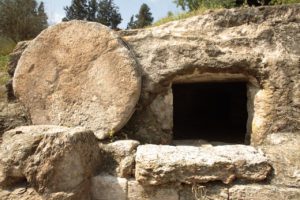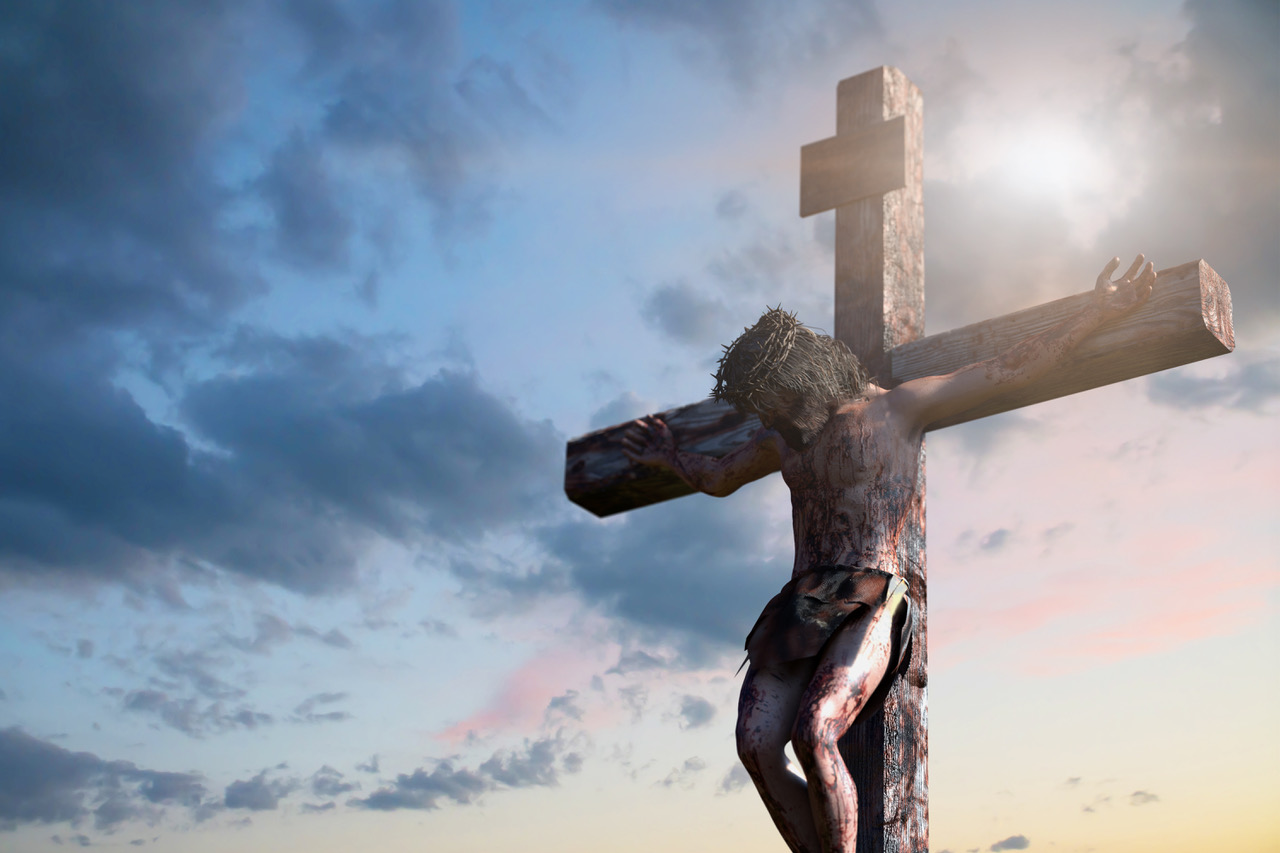filter posts:
Date
The Gospel Message Will Stand
 Two preachers were standing on the side of the road holding signs. The first sign read, “The End is Near.” The next read, “Turn around now before it’s too late.” One driver flew past and yelled, “Get a job, losers!” followed closely by another who screamed, “Get lost, you religious nuts!” A few moments later the preachers heard the screech of brakes, followed by two loud splashes. One preacher said to the other, “Do you think we should change our signs to say ‘Bridge Out’?” You may not like those who stand on the street corners and preach or hold up signs about Jesus. You may not like the fact that some pastors give an altar call every Sunday morning and others, hardly ever. That’s methods, not message. You may not like the way an author like C.S. Lewis uses fantasy to write about the Gospel. Method, not message. It is part of the Christian maturing process that teaches us to distinguish between method and message, and to give each other great leeway with the former. Not with the latter. The message of the Gospel, as preached by Jesus and explained by the Apostles, must not be changed in any way. When someone changes it, or opposes it, to use Paul’s language, we must beware.
Two preachers were standing on the side of the road holding signs. The first sign read, “The End is Near.” The next read, “Turn around now before it’s too late.” One driver flew past and yelled, “Get a job, losers!” followed closely by another who screamed, “Get lost, you religious nuts!” A few moments later the preachers heard the screech of brakes, followed by two loud splashes. One preacher said to the other, “Do you think we should change our signs to say ‘Bridge Out’?” You may not like those who stand on the street corners and preach or hold up signs about Jesus. You may not like the fact that some pastors give an altar call every Sunday morning and others, hardly ever. That’s methods, not message. You may not like the way an author like C.S. Lewis uses fantasy to write about the Gospel. Method, not message. It is part of the Christian maturing process that teaches us to distinguish between method and message, and to give each other great leeway with the former. Not with the latter. The message of the Gospel, as preached by Jesus and explained by the Apostles, must not be changed in any way. When someone changes it, or opposes it, to use Paul’s language, we must beware.
It was the winter of 1998, and the four oldest Fox children had walked from where we lived in downtown Graham over to the Pine Cemetery, pulling their sleds behind them. There was a great hill for sledding in the cemetery that attracted the kids in the neighborhood whenever we had a “real” winter. The little Foxes had been gone for about an hour when Jesse, then 4 years old, asked his Mom, “When are they going to come back from the grave?”
The greatest news the world has ever heard is the news that Jesus Christ came back from the grave. For centuries Christians have lived with hope amid suffering, have read his Word and kept his commandments, have gathered with others who believe and given their lives to telling the story, and have even given up their lives to follow him.
Here’s the thing. Christians do not follow a man, and our faith does not hinge on whether a local pastor or a denominational leader or a pope or an ancient prophet is a “good man” or not. Our faith rests on the person of Jesus Christ, who is the Son of God. He has existed forever and took on human flesh in Bethlehem 2000 years ago, entering human history to save those who would believe in him and in him alone. He did not come, like those who represent other world religions, to merely point to the way. He said, “I am the way, and the truth, and the life. No one comes to the Father except through me.”
Gautama Buddha, the founder of Buddhism, and considered the “Enlightened One” by more than 500 million Buddhists, is dead. Mohammed, the man revered by more than one billion Muslims, and believed to be the greatest prophet of all, greater than Jesus, is dead.
Jesus is alive. If Jesus is found to be a fraud, or a lunatic, or self-deceived, Christianity crumbles. If Jesus did not rise from the dead after three days in a tomb, then all we who put our hope in him are fools at best.
So, here is the challenge. If you put your faith in anyone other than Christ or in no one at all, would you at least be willing to attack the resurrection of Jesus with every molecule in your body? Do what Lord George Lyttleton, Frank Morison, C.S. Lewis, Josh McDowell, Lee Strobel, and many others have done. These former atheists were scholars, college professors, journalists, or members of Parliament. Each of them sought to disprove the resurrection of Jesus Christ. Each of them came to believe in Jesus after carefully examining the evidence with a desire to know the truth.
We can agree to disagree on methods: how we will proclaim the good news of the Gospel. The Gospel message, however, must stand. It will stand. Jesus Christ is alive.
October 31, 2021
Some Things You Just Don’t Borrow
 I wrote this column several years ago for the Times-News of Burlington.
I wrote this column several years ago for the Times-News of Burlington.
How many of you remember your Mom’s stern warning to you as a child: “Do not borrow anybody’s comb!” My Mom was pretty convinced that if I ran someone’s comb through my hair, I would instantly be infested with microscopic creatures that would eat through my scalp and destroy me and life on the planet, as we know it. She even said I would be better off drinking out of somebody else’s water bottle than to use their comb. So, I went through my childhood with an irrational fear of hair germs and would break into a cold sweat when I saw teens sharing their combs willy-nilly (or their picks…remember those?) without regard for life or limb or scalp. I was convinced that’s why this kid in high school named Chad went bald at 18. He was probably sneaking behind the gym with borrowed combs almost every day. There are some things you just don’t borrow. Like mouth guards, if you are playing on the basketball team, riding the pine, and suddenly the coach yells for you to get in the game. I never expected to be put in the game. We couldn’t be enough points ahead for the coach to put me in the game. But here he was, calling my name, and I can’t find my mouth guard. Hey, better to risk losing all my teeth in the lane as I am bumping armpits with my head, while trying to get a rebound, than to borrow a mouth guard from Lewis, the kid on the bench even further down the roster than I was. I am pretty sure that Lewis kept his mouth guard inside his tennis shoes when they weren’t on his feet. For all I knew, he may have thrown his comb in there, too. No way am I borrowing his mouth guard.
There are some things you just don’t borrow. Like burial plots. I mean, once you are dead, you’re dead, right? There is no way you can borrow a burial plot. You can only borrow something that you intend to give back.
Check the records. There is a burial plot in Jerusalem owned by a certain Joseph of Arimathea. When Jesus was crucified nearly 2000 years ago, Joseph asked Pilate if he could take the body of Jesus. He put Jesus in “a new tomb that had never been used.” Three days later, that tomb was available again because Jesus was raised from the dead, just as he said he would be. You know what is interesting about the Son of God? He entered the world through a virgin birth. He entered Jerusalem for his final week on a borrowed donkey colt, one that had never been ridden. He was laid in a borrowed tomb on Friday, and he gave it back on Sunday. There are some things you just don’t borrow.
But I will be eternally grateful that Jesus borrowed his gravesite. That means I will only be borrowing mine for a little while, too.
October 25, 2021
The Women who Watched Jesus Die
 At the very heart of the Christian faith is the story of Jesus’ death and resurrection. We have come to the heart of this Gospel, and it is the reason for our hope even in the face of our own death. Anne Graham Lotz said, “Death is a door. When we close our eyes in this life, we will open our eyes to Jesus.” That’s because, as DL Moody said, “Death may be the King of terrors, but Jesus is the King of kings!” The first point of my sermon about Jesus on the cross yesterday was about the women who watched.
At the very heart of the Christian faith is the story of Jesus’ death and resurrection. We have come to the heart of this Gospel, and it is the reason for our hope even in the face of our own death. Anne Graham Lotz said, “Death is a door. When we close our eyes in this life, we will open our eyes to Jesus.” That’s because, as DL Moody said, “Death may be the King of terrors, but Jesus is the King of kings!” The first point of my sermon about Jesus on the cross yesterday was about the women who watched.
Mark’s gospel says these three women watched “from a distance.” But at least they watched. They were afraid, as we will see in chapter 16, but at least they were there. To be present and fearful is better than to be absent and fearful. The men, at least according to Mark’s gospel, had all scattered and fled. These three women stayed. Who were they? Mary Magdalene is named first and in all four Gospels, Mary Magdalene’s name appears as the first witness to the resurrection. We know she loved Jesus and he loved her. Luke and Mark both tell us that Jesus delivered Mary Magdalene from seven demons. You see that in Mark 16:9. But there is no biblical evidence that Mary Magdalene was a prostitute. She is often portrayed that way in literature and in film, even in the excellent series, “The Chosen,” but the Gospels do not support that. This mischaracterization began in the 6th century when Pope Gregory I conflated the story of Mary Magdalene’s deliverance in Luke 8 with the story Luke told in chapter 7 of an unnamed “woman of the city who was a sinner.” Mary Magdalene is named 12 times in the Gospels, more than most of the apostles, and there is no evidence to support that she is ever referred to in the Gospels as an unnamed woman.
The second woman is Mary the mother of James the younger and Joses. Most believe this is Mary the mother of Jesus, and that her other two sons, Judas and Simon, are not named because they are not known to the church in Rome at the time of Mark’s writing. James the younger? Perhaps this is to distinguish him from James the son of Zebedee and brother of John. Many believe Salome, the third woman mentioned here by Mark, is the mother of James and John and is the sister to Mary. That would make Jesus and the sons of Zebedee cousins. We cannot know these things for sure, and it is not a hill to die on. What is important here and in the next chapter, since it is rare for Mark to mention personal names, is that he does this to establish the eyewitnesses who saw where Jesus was buried, and saw him when he was resurrected. These women were witnesses to the greatest moment in human history, the death, burial, and resurrection of Jesus Christ.
What is most important about these women and all the women who are not named but who were clearly disciples of Jesus? Mark tells us. These women “followed him and ministered to him.” The verb tenses are continuous. The women were afraid at this point, but they did not stop following Jesus and they sought to minister to him, even to anoint his dead body. It is only angels and women who are said to have “ministered to Jesus” in the Gospel of Mark. These women, and the “many other women who came up with him to Jerusalem,” as Mark said, were faithful followers of Jesus, even though they were not the most notable, and most were never named, unlike the twelve apostles. But as Mark writes, what these women did, following and ministering to Jesus, is the very picture of discipleship.
Want to be a disciple of Jesus? Follow him, day by day, and minister to him by loving his people and having compassion on the lost, day by day.
October 18, 2021
There They Crucified Him
 Plutarch wrote, “every criminal condemned to death bears his cross on his back.” Jesus was too weak to carry the patibulum, the cross beam, so the Roman soldiers “compelled a passerby” to carry it for him. Simon of Cyrene, which was on the north coast of Africa. Simon was likely a man of color, but he was not a Roman citizen and that’s why they told him to do it. He was close by and they needed to get this man and his instrument of torture out of town. What did Simon do for Jesus? He took up his cross and followed Jesus, the very thing that Jesus has told his disciples to do. James Edwards writes, “It is worth considering…whether Simon’s faithfulness in carrying the cross of Jesus resulted in his sons’ participation in the faith and in the church.” I would submit to you that it is the most important thing a son or daughter can see their father and their mother do! Do they see you work hard to provide food and clothing, to keep a clean house and give them opportunities to learn and grow and have fun and get rest and be healthy? Excellent! But even more excellent is that they see their dad and their mom taking up their cross daily and following the Lord. There is no price that could be put on that blessing for any child.
Plutarch wrote, “every criminal condemned to death bears his cross on his back.” Jesus was too weak to carry the patibulum, the cross beam, so the Roman soldiers “compelled a passerby” to carry it for him. Simon of Cyrene, which was on the north coast of Africa. Simon was likely a man of color, but he was not a Roman citizen and that’s why they told him to do it. He was close by and they needed to get this man and his instrument of torture out of town. What did Simon do for Jesus? He took up his cross and followed Jesus, the very thing that Jesus has told his disciples to do. James Edwards writes, “It is worth considering…whether Simon’s faithfulness in carrying the cross of Jesus resulted in his sons’ participation in the faith and in the church.” I would submit to you that it is the most important thing a son or daughter can see their father and their mother do! Do they see you work hard to provide food and clothing, to keep a clean house and give them opportunities to learn and grow and have fun and get rest and be healthy? Excellent! But even more excellent is that they see their dad and their mom taking up their cross daily and following the Lord. There is no price that could be put on that blessing for any child.
They led Jesus out of the city and to Golgotha, which Mark tells his Roman readers was called “the place of the skull.” There they offered Jesus an ancient narcotic, “wine mixed with myrrh,” but he refused. It would have numbed him a little, but Jesus does not give himself to dulled senses. He welcomes the Father’s will with a fully conscious state.
They divided his clothing by casting lots. The wine mixed with myrrh and the divided clothing were prophesies which the Roman soldiers unwittingly fulfilled. “They gave me poison for food, and for my thirst they gave me sour wine to drink.” (Psalm 69:21) “They divide my garments among them, and for my clothes they cast lots.” (Psalm 22:18)
They crucified Jesus in between two robbers, recalling the question James and John had asked Jesus, if they could be positioned on his right and his left in the kingdom. Mark opens up a little more now, breaking away from his normal reserve to report on the scorners who passed by the cross. They are not given names, just described as deriding Jesus, wagging their heads, and mocking him. Again, a fulfillment of prophesy: “All who see me mock me; they make mouths at me; they wag their heads; He trusts in the Lord; let him deliver him; let him rescue him, for he delights in him!” (Psalm 22:7-8)
They mock him as a prophet. “Aha! You who would destroy the temple and rebuild it in three days, save yourself, and come down from the cross.
They mock him as a priest. “He saved others; he cannot save himself.”
They mock him as a king. “Let the Christ, the King of Israel, come down from the cross that we may see and believe.”
The mockery of Jesus did not end at the cross but continues today all around the world. There are churches all over the country that have different color doors on their front lawns that represent Islam and Hinduism and Buddhism and other world religions, along with their symbols, and the message written on them is, “God’s doors are open to all.” It makes a mockery of the cross where the Son of God died who said, “I am the door. If anyone enters by me, he will be saved…” (John 10:9) “I am the way, and the truth, and the life. No one comes to the Father except through me.” (John 14:6) “Father, the hour has come; glorify your Son that the Son may glorify you…this is eternal life, that they know you, the only true God, and Jesus Christ whom you have sent.” (John 17:1-3)
Back to the cross…They mocked the prophet, the priest, the king, the Christ. Notice that all three of these taunts assume that to save oneself is the highest aim, and that to vindicate himself as a Messiah, Jesus only needs to come down from the cross and save himself. But Jesus did not leave glory and come to earth to teach us how to help ourselves or how to fulfill ourselves. We cannot save ourselves, and all the world religions deceive men and women into thinking that they can. But Jesus came to “give his life as a ransom for many.” He came to do the will of the Father, not his own will. The irony is that those who mock him and tell him they would believe in him as a Savior if he would only come down from the cross would have nothing to believe in had he done that. Jesus died on the cross. Just as he said he would.
October 10, 2021
Grace Greater Than Our Sin
 It’s OMIF time for Peter again in the upper room (Mark 14:26ff). Open Mouth Insert Foot. He is not a bit happy that Jesus has said that ALL of the twelve disciples will fall away. And it is interesting how Peter frames his protest, isn’t it? He basically throws the other ten right under the Backslide Bus that’s about to barrel down the highway, but claims HE, Peter, will not be on it! He doesn’t defend the other disciples, only himself. It’s like the old ditty that went something like this: “There ain’t no flies on me; might be flies on some those guys, but there ain’t no flies on me!” Peter says to Jesus, “Even though they all fall away, I will not.” Peter has little doubt that they will fall away, and ZERO doubt that HE will not fall away. We need to be careful, believers, of thinking of ourselves as the exception to the rule, and especially to point fingers at others we see who don’t live up to the rule. No matter what that rule is. James Edwards writes, “It is of no use to protest that we have not committed the sins we self-righteously condemn in others. The question is not what sins we have committed as much as what sins would we commit were we faced with serious pressure, temptation, opportunity, and threat.”
It’s OMIF time for Peter again in the upper room (Mark 14:26ff). Open Mouth Insert Foot. He is not a bit happy that Jesus has said that ALL of the twelve disciples will fall away. And it is interesting how Peter frames his protest, isn’t it? He basically throws the other ten right under the Backslide Bus that’s about to barrel down the highway, but claims HE, Peter, will not be on it! He doesn’t defend the other disciples, only himself. It’s like the old ditty that went something like this: “There ain’t no flies on me; might be flies on some those guys, but there ain’t no flies on me!” Peter says to Jesus, “Even though they all fall away, I will not.” Peter has little doubt that they will fall away, and ZERO doubt that HE will not fall away. We need to be careful, believers, of thinking of ourselves as the exception to the rule, and especially to point fingers at others we see who don’t live up to the rule. No matter what that rule is. James Edwards writes, “It is of no use to protest that we have not committed the sins we self-righteously condemn in others. The question is not what sins we have committed as much as what sins would we commit were we faced with serious pressure, temptation, opportunity, and threat.”
Jesus interrupts Peter’s boastful claims with a strong dose of reality: Truth? “This very night, before the rooster crows twice, you will deny me three times.” The word for ‘betray” literally means to disown. To remove from oneself. To reject. Not just once, Peter, which could be excused by a momentary lapse, a moment of weakness. Three times. And you will know it has happened when you hear the rooster crow the second time. Perhaps the first time Peter heard it, there was a warning to stop in his tracks and turn back to the Lord? But he did not. But the good news is that there is future grace for the people of God! Jesus will give that to Peter on the beach in John 21, when he asks him three times, once for every time Peter disowned him, “Do you love me, Peter?” And Peter will be able to say, “Lord, you know I do, even with all of my failures, you know I do love you.” And oh, how much the Lord loved Peter, and how much the Lord loves you and me. Even when we deny him. His grace is greater than all our sin.
What are some applications from this text?
Let us recognize God is in control of every circumstance, and that future grace is there for us every moment. Without fail. God leads us beside still waters. God also leads us through the valley of the shadow of death. When we fall, his grace is there to pick us up and give us strength to keep going.
Let us grow in trust and love for our brothers and sisters in Christ. I would imagine it was very difficult for the ten to know how to deal with the one, even though it was Peter, when they found out he had denied the Lord three times. Just like it may be hard for you sometimes to love someone in the church who hurts you, or to trust the pastor or the elders when they don’t do or say what you think we should do or say. But remember, saints. We all fail. Each one of us. Good news! Christ never fails. We all fall. Good news! Christ still loves us when we do.
Cindy and I recently finished reading Megan Hill’s book, “The Place to Belong,” a book about the local church. Here’s an excerpt:
“Dear member of Christ’s church, soon you will hear the voice of Christ calling you, “Come up.” (Rev. 4:11). Come up to the heavenly Jerusalem. Come up to the city with foundations. Come up to the very throne of God and the near presence of Christ. Come up to the assembly of the redeemed. Come, join the multitude. This vision of the church’s sure and certain future ought to encourage our hearts. Soon, the ordinary congregation to which we belong (yes, Antioch!) will be glorified, and it is right for us to eagerly anticipate that day. But, in that day, your church will be no more precious to Christ than it is today. The church in eternity will appear more lovely, but it will not be more loved. And as we commit ourselves even now to the local church, we testify to this reality. Because Christ delights in his church, we delight in it. Because Christ calls it his own, we call it our own. Because Christ loves the church, we love it too. Week after week, we give ourselves for the good of the people whom God loves. And in eternity we will not be disappointed. Come. This is where you belong.”
October 3, 2021
